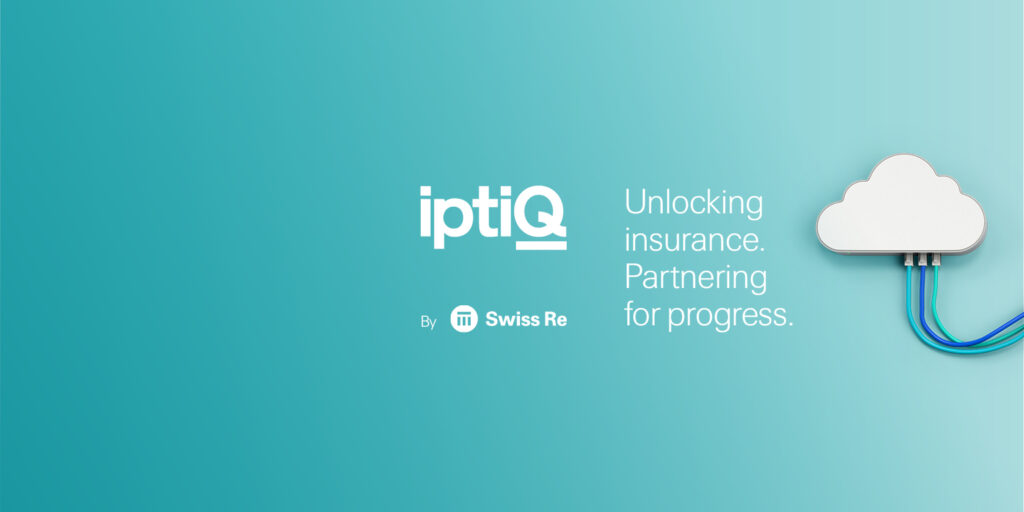Robert Burr joined Swiss Re in July 2011. He initially served as Head of Life & Health, Reinsurance Client Markets Asia, expanding the business significantly across the region. In September 2022, he was appointed as CEO of iptiQ, after heading the division’s APAC operations.
With over 25 years of senior experience in insurance, his journey includes roles in London as an Aviation broker, strategic distribution partnerships management with CIGNA, and leadership positions at AIG and Sun Life in Asia.
You’ve enjoyed a long career in insurance. Can you briefly describe your career journey?
I started my career as a life insurance agent for Prudential, and I later delved into financial services marketing, working on brands like American Express and Citibank. With a primary focus on distribution, I’ve always centred decision-making around the customer. In consumer-centric environments, understanding customer needs is often undervalued in financial services, but it’s been a driving force in my approach.
Now, at iptiQ, we’re steering towards consumer-centricity, stressing the vital role of closing the protection gap for families and society. Insurance products, much like other financial offerings, are usually sold rather than spontaneously bought. Through iptiQ, we engage directly with consumers, fostering meaningful conversations about how our products can truly benefit them.
Having spent time as an insurance agent, a member of the advertising and marketing community, and a marketing manager for major players like AIG and Sun Life, I’ve consistently advocated for putting the customer at the core of every conversation. This ethos is crucial, not just for iptiQ’s success, but also for making a positive impact on individuals and society by addressing their real needs and concerns.

Tell us about iptiQ and its position in the marketplace
iptiQ is Swiss Re’s B2B2C digital insurance company. At our core, we’re an insurer holding both life and P&C licences, allowing us to cover a broad spectrum of risks. Over the past seven years, we’ve evolved into a digital distribution powerhouse, using technology to provide enhanced access to insurance products and services. While we’re not strictly a traditional InsureTech, we recognise the evolving nature of the industry.
Our focus rests on two core platforms: one for life insurance and another one for non-life P&C, catering to areas like motor and home insurance.
Our overarching goal is to address society’s protection gap, a commitment we’ve maintained for years. We believe that leveraging digital platforms and strategic partnerships is key to offering a wider array of products to a larger audience.
Let’s delve into the shift towards more intuitive products, especially considering the integral role of technology. Can you share insights into the recent study published by Swiss Re Institute titled “The economics of digitalisation in insurance”, and how iptiQ perceives the findings?
Certainly. This Sigma report introduced the new Insurance Digitalisation Index, providing a structured measure of how countries are advancing their digital infrastructures within the insurance markets. Notably, countries like China and India are making significant leaps in this digital evolution.
This rapid digitalisation has profound implications for bridging the protection gap in societies. Our message is clear: to close this gap, insurance and technology companies must contribute to building robust digital ecosystems. The emphasis is on simplifying the customer experience, acknowledging that insurance is not an intuitive, everyday purchase.
Unlike dynamic banking relationships, insurance interactions are less frequent, making it crucial to make each conversation significant. Technology facilitates entry into diverse risk pools, fostering discussions around the dinner table. In the current economic climate, where inflation and living costs are high, the role of insurance in stabilising society gains paramount importance. Effective communication becomes a linchpin, more critical now than ever.

The digital revolution is undoubtedly reshaping the insurance landscape. Could you shed light on the challenges these substantial leaps pose for the industry, particularly in terms of speed and regulation?
Absolutely. The speed-to-market conversation is crucial in a digital environment, but we operate in a highly regulated industry. Balancing the need for agility with the responsibility to consumers and the industry is paramount. Rushing products to market without adhering to the rigorous development required in financial services is a temptation we resist. Ensuring fairness, responsible sales practices, and product suitability are non-negotiables.
In highly commoditised sectors like motor insurance, where consumer literacy is high, the process is streamlined. However, voluntary insurance demands a more nuanced approach. Digitally, we face the challenge of replicating the personalised matching that a sales agent traditionally provided. We aim to condense complex discussions into a digital proposition that emphasises the importance and value of insurance in financial planning.
Trust is a cornerstone of this effort, with iptiQ focussing on digital trust for several years. Ensuring the reliability of technology, products, and the claims team is a top priority, occupying a significant portion of our focus. Ultimately, we want people to feel comfortable engaging in crucial conversations about insurance using our digital platform.
Shifting gears to leadership and the adoption of new digital practices, recent polling identified cultural changes within companies as a significant hurdle to innovation. Given your extensive career and the unique position of iptiQ as a new company, what strategies do you employ to address this challenge?
It’s a fascinating topic. At Swiss Re, we pride ourselves on the concept of “One Swiss Re,” encouraging a unified culture. However, with a 160-year history, altering ingrained thinking can be challenging. We operate in a traditional line-of-business silo approach. iptiQ, being relatively young, has the advantage of a more youthful, diverse workforce that doesn’t carry the same silo mindset.
Cross-fertilisation is crucial for us, breaking down departmental barriers. Managing a workforce where coders and actuaries coexist requires creating an inclusive environment. Our challenge lies in making everyone, from pricing actuaries to platform coders, feel at home within iptiQ. Unlike traditional insurance companies where IT often sits in the background, our IT department actively engages in customer experience (CX) and user experience (UX) conversations. They’re integral to understanding consumer needs digitally and implementing changes that enhance relationships.
To create unity, our management team focuses on creating a shared identity, making different communities within iptiQ think and act as one. We encourage proximity in physical locations, with technology and insurance teams sitting together to promote understanding. This extends even to outsourced resources, where understanding roles becomes crucial. While outsourcing is necessary at times, maintaining alignment in mindset and purpose is a continuous effort to ensure a seamless collaboration between technology and insurance, recognizing their distinct yet interdependent roles.
You touched on the internal trust between teams, but how do you build and maintain external trust, especially when it comes to the technology and data aspects?
External trust is paramount for us, encompassing trust in our technology and how we handle data. While we didn’t delve into data specifics today, asking people to share their data requires a responsible approach. It’s crucial for individuals to trust our brand, acknowledging our association with Swiss Re and inheriting its DNA. Beyond that, trust extends to our products, ensuring they offer fair value and deliver on their promises.
In the complex realm of insurance, trust is also about being there when customers need us, whether they prefer interacting with a computer or a human being. This flexibility is especially crucial in emotionally charged situations, such as the claims process, where individuals are navigating through loss. Providing a platform that accommodates both automated and human interactions is pivotal in fostering trust in our products and services.
If you had the power to change one aspect of the insurance space with a single click of your fingers, propelling it forward, what would that be, and why?
If I had one wish, it would be to close society’s protection gaps. My connection with Swiss Re’s purpose deepened early in my career when, as a Prudential agent, I delivered the first claims check to a grieving family in 1983. Witnessing the relief on their faces made me realise the immense good we could do in this industry. So, my one-click change would be for people to truly understand the value and honour in what we do. Swiss Re writes checks when bad things happen, a powerful act of protection for society.
I wish it were easier to convey the profound impact of our role in safeguarding communities. Imagine if, like mandatory car insurance, other essential insurances were recognized as vital purchases, reducing reliance on state systems. My desire is for insurance to shift from being a sold product to a bought product across all sectors. Digital technology now allows for accessible face-to-face or digital conversations. If we could make insurance more understandable and accessible, it would have a transformative effect on society.

What’s on the horizon for iptiQ? Are there any exciting developments or new initiatives that you can share, perhaps something we can anticipate towards the end of this year or the beginning of 2024?
Absolutely, we have several exciting announcements lined up in Europe over the next six months, introducing new partnerships that align with our focus on digital trust and prioritizing consumers. While I can’t delve into the specifics at this moment, we’re confident in the positive trajectory of our business.
On the technology front, we have upcoming releases, especially in the motor and full-service model domains. Our learning curve has highlighted the constant need to update and expand our technology landscape, ensuring our platforms remain dynamic. For instance, in life insurance, where we initially focused on term life, the scalable platform now allows us to introduce a variety of product variations, enriching our consumer offerings.
Balancing technology investment with partner alignment and consumer appeal is a delicate art that we’ve mastered. The property and casualty motor businesses in Europe are gearing up for expansion, and in the US, we’re in the process of upgrading platforms to align with our evolving long-term vision and product offerings. So, to sum it up, there’s a lot of dynamic activity on the horizon, making it an exciting time for iptiQ.
And finally, what aspects of the industry inspire you today?
The most thrilling aspect in insurtech is the role of technology as an enabler, facilitating the processing of customer requirements with unprecedented accuracy and speed. Witnessing the transition from traditional phone interactions to a surge in online engagements has been particularly rewarding.
At iptiQ, there’s a cultural embrace of technology as a facilitator, recognizing its ability not only to streamline interactions but also to build more relationships. This fosters an environment where transactions flourish. Scaling up is crucial, and our continuous pursuit of technological enhancements contributes to achieving and surpassing significant milestones.
Despite challenges in the InsureTech sector, with venture capital withdrawals, iptiQ, backed by Swiss Re, remains resilient and aims to lead the way forward. Understanding the intricate interplay of risk management, return on investment, compliance, and governance strategically positions us. Our prowess in converting insurance building blocks into technology assets, especially in automation, underscores iptiQ’s strength in risk management and sets us apart in the industry.
Interview by Joanna England

Joanna England is an award-winning journalist and the Editor-in-Chief for Insurtech Insights. She has worked for 25 years in both the consumer and business space, and also spent 15 years in the Middle East, on national newspapers as well as leading events and lifestyle publications. Prior to Insurtech Insights, Joanna was the Editor-in-Chief for Fintech Magazine and Insurtech Digital. She was also listed by MPVR as one of the Top 30 journalist in Fintech and Insurtech in 2023.








